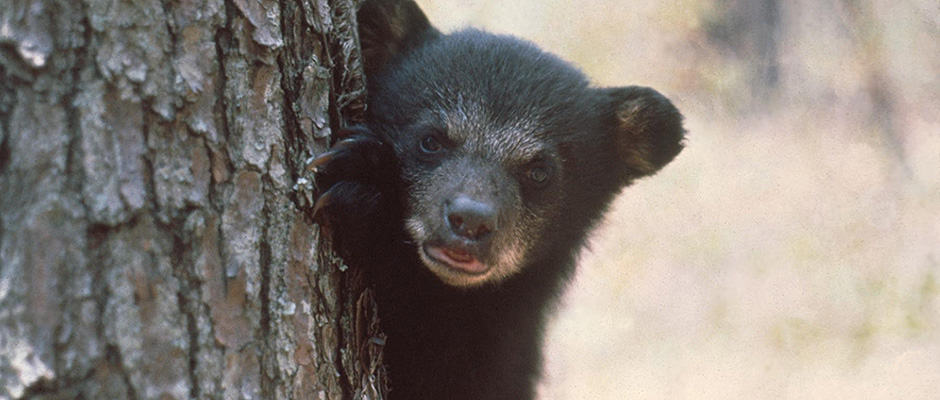Share this article
Officials Consider Limited Bear Hunts in Florida
The Florida Fish and Wildlife Conservation Commission met in Jacksonville last week to discuss black bear (Ursus americanus floridanus) management strategies to help reduce human-bear conflicts. At the meeting, commissioners discussed what actions the FWC will take through research, management and proposed rule and policy changes to help ensure the reduction of human-bear conflict.
The increase of the black bear population, which commissioners said has reached 3,000 individuals in Florida, has caused human-bear conflict harming both parties. After the jump in the number of people injured by bears in the past year, the FWC decided to meet and determine possible solutions.
Since 2012, four people have been injured in bear attacks in Florida. In one case, a 68-year-old woman was bitten by a Florida black bear in a Central Florida neighborhood in Dec. 2014. Although her injuries were not fatal, neighbors were rightfully concerned and urged the FWC to take action.
Bears are on the receiving end of the conflict as well. In the past decade, there has been a steep increase in the amount of bears killed by vehicles, the FWC reported.
“Our multipronged approach focuses on maintaining bear populations at healthy levels while ensuring public safety,” said Commissioner Brian Yablonski in a press release. “However, this is not something we can do on our own. There has to be an element of getting the community to police itself, since food attractants are the vast majority of the problem.”
The FWC said they are conducting research in which they collect bear hair samples to determine how active black bears are in certain areas. They also started a website where people can enter the locations of bear sightings to help officials determine where there is extensive bear activity.
The FWC also discussed bear hunting as a management strategy at the meeting. Commissioners asked staff to move forward in developing specified plans for limited bear hunting in Florida to help reduce the overgrowing population of bears and manage the population.
Policy changes also were an important point of discussion at the meeting. According to a press release, staff were directed to make changes to the Bear, Fox and Raccoon Feeding Rule 68A- 4.001 (3), and the Bear Conservation Rule 68A-4.009. A change made to the latter rule would allow individuals to lethally remove black bears if they are damaging their property.
Bear attractants, like garbage, are one of the main culprits for human-bear conflict, according the FWC.
“The best action people can take to help reduce conflicts with bears is to secure attractants from their home or business,” said Carli Segelson, a community relations officer with the Habitat and Species Conservation sector of the FWC.
Just a few weeks ago, the largest black bear in Florida that was trapped and killed, likely got so large due to trash consumption according to the FWC.
“We are taking a more aggressive approach to conflict bears in neighborhoods and will continue to partner with counties, municipalities and homeowner associations to reduce conflicts by securing bear attractants like garbage,” said FWC Chairman Richard Corbett in a press release. “Properly securing garbage and other attractants is the single most important action for reducing conflict situations with bears.”
While commissioners discussed progressive changes to ensure resolutions of the human-bear conflict, the FWC stresses the importance of citizen responsibility as well.
“Many of the bear conflict issues we are facing, particularly comprehensive waste management go far beyond the ability of the FWC to handle alone,” said Thomas Eason, director of the FWC’s Division of Habitat and Species Conservation in a press release. “We all must share in the responsibility to manage human-bear conflicts effectively to achieve sustainable coexistence.”
The FWC’s next meeting will be in April 2015, and the progress made from these changes will be discussed.
Header Image:
A Florida black bear peeks around a tree. The Florida Fish and Wildlife Conservation Commission met last week to discuss ways to address the human-bear conflict in Florida.
Image Credit: MyFWCMedia via Flickr








